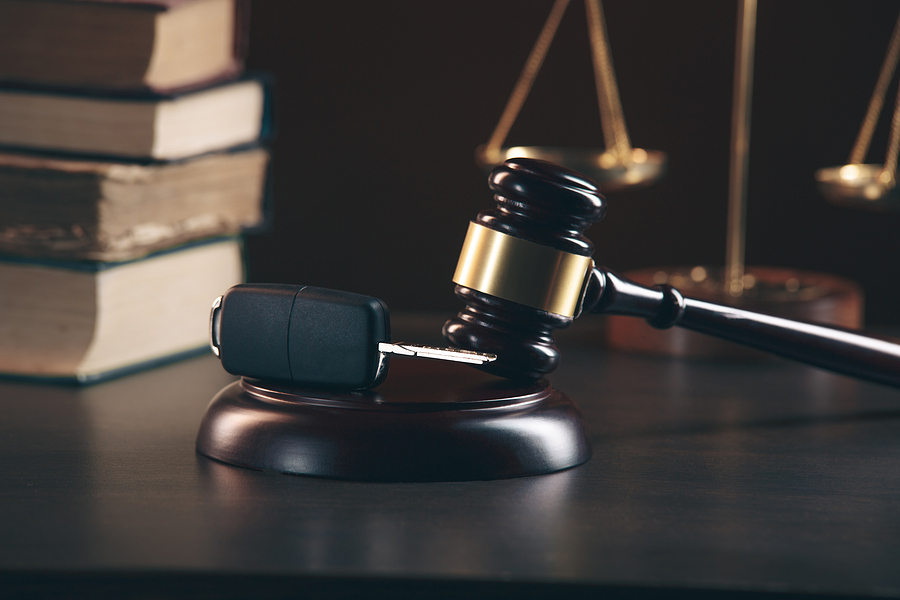Can I Sue After A Car Accident Under Florida’s No-Fault Laws?
 Michael Babboni
Car Accidents
When you have been injured as a result of an accident through no fault of your own you can seek damages from the at fault driver. However, under Florida law you must prove that the driver who caused the accident, known as the defendant acted with negligence and therefore is liable for the damages you have incurred. While you can ask for damages, it is important that you have a good Florida personal injury attorney to guide you to a successful conclusion.
Michael Babboni
Car Accidents
When you have been injured as a result of an accident through no fault of your own you can seek damages from the at fault driver. However, under Florida law you must prove that the driver who caused the accident, known as the defendant acted with negligence and therefore is liable for the damages you have incurred. While you can ask for damages, it is important that you have a good Florida personal injury attorney to guide you to a successful conclusion.How The State Of Florida Defines Negligence
The legal definition of negligence under Florida law, is the failure to use reasonable care that a reasonably cautious person would use under the same circumstances. Negligence includes a great many actions to demonstrate that someone acted recklessly or unreasonably that ended in an auto accident. It is a complicated process but it is the key element in determining and getting compensation.
Proving The Other Driver Was Negligent and Liable
In any personal injury case in Florida, it is the injured party or the “plaintiff” that must prove four elements. They are as follows:
● Defendant owes plaintiff duty of care.
● The Defendant breached this duty by acting negligently.
● This Breach of Duty led to your injuries.
● The plaintiff’s injuries are compensable
An example of the four elements. All drivers understand that when the light goes from green to yellow to red, you are to slow down and then stop. Therefore it is every driver's duty to stop on red (duty of care). When the defendant sped up and ran through the red light, broadsiding you, they were negligent and breached their duty. As a result of hitting your vehicle you were seriously injured. You have the medical bills and other proof you wish to be compensated for.
Florida Uses Pure Comparative Negligence To Decide Compensation
Another factor besides the four elements in personal injury cases in Florida is the degree of the party’s negligence. The state of Florida recognizes that in reality, often there is more than one party that contributes to the accident. For example, was the traffic light malfunctioning when you were hit, Did you enter the intersection prematurely? The determination is analyzed under pure comparative negligence or contributory fault. So if it is determined that you may have been at fault for 20% of the accident, you can sue for 80% of your damages.
Damages If Negligence Is Proven
Once your personal injury lawyer has proven that the defendant was negligent, you can be awarded compensation for the following.
• Economic Compensatory Damages: Compensates for any financial losses due to defendant's negligence. This includes medical bills, lost wages, medical equipment. Florida has no cap for these damages.
• Non-Economic Compensatory Damages: These damages are designed to help you become whole again. These damages include: pain and suffering, loss of enjoyment of life, emotional anguish, etc.
• Punitive Damages: Unlike other types of damages, punitive damages are specifically meant to punish the defendant. Mostly used as a deterrent to prevent similar behavior happening again, these damages are only awarded in very few cases.
You deserve to be compensated for injuries that were not your fault. However, to get that compensation, it is a complicated process. Insurance companies are businesses. It is their job to make money. You need a personal injury lawyer that is not afraid to take on the big insurance companies. Michael Babboni, the St. Pete Lawyer can help.
For 30 years, he has been fighting for victims of auto accidents and he will fight for you. Contact us today for a free consultation. He will even come to your home or hospital to help you.
